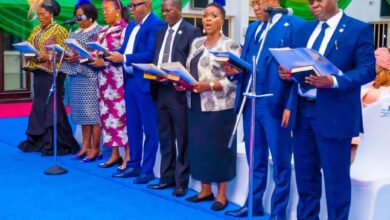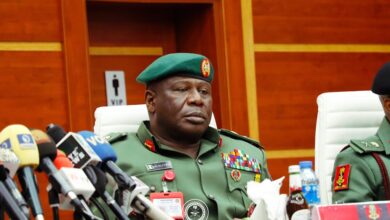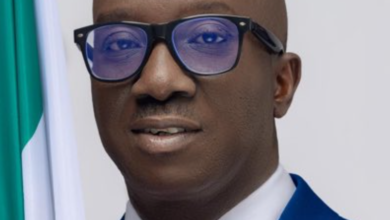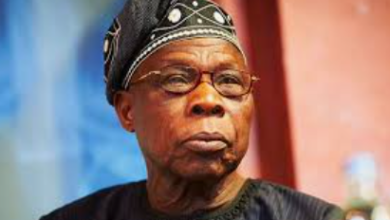UNGA 79: Tinubu Advocates Debt Relief For Nigeria And Developing Nations
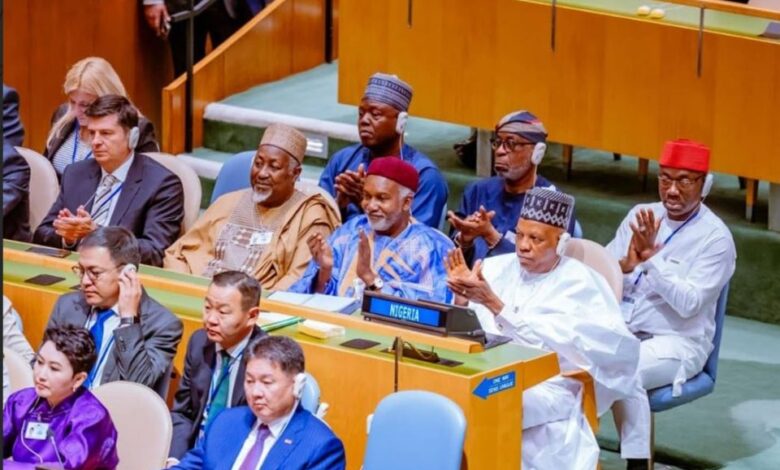
During the 79th Session of the United Nations General Assembly, President Bola Tinubu of Nigeria called on world leaders to prioritize debt forgiveness for Nigeria and other developing nations. Speaking through Vice President Kashim Shettima, Tinubu urged for reform in the international financial system, emphasizing that countries in the global South need special concessions to alleviate the economic strain caused by crushing debt burdens. Nigeria’s own debt has soared to N121.67 trillion ($91.46 billion) as of the first quarter of 2024, with state-level debt servicing costs skyrocketing by 122% in the same period.
Tinubu highlighted how debt burdens, trade barriers, and protectionist policies are stifling economic progress in developing countries. He called for comprehensive debt relief measures to foster sustainable development and also advocated for the recovery of illicit financial flows to ensure developing nations have the resources needed to meet the aspirations of their citizens.
In addition to debt relief, the President called for reforms in the global multilateral system. He expressed concerns about rising nationalism and unilateralism, which undermine collective global action against challenges like terrorism, climate change, and poverty. Tinubu reaffirmed Nigeria’s commitment to multilateralism, urging the UN to stay true to its founding principles of inclusivity, equality, and cooperation.
Addressing issues within Africa, Tinubu decried the return of military coups, which he said reflected the fragility of democracy when not paired with economic development. He called for more efforts to restore democratic governance and support economic development across the continent.
On climate change, Tinubu warned of the environmental and security risks it poses, referencing recent floods in Nigeria and calling for global adherence to climate agreements. He also pressed for reforms in the UN Security Council, advocating for Africa to have a permanent seat in recognition of the continent’s growing influence and needs.
Through these appeals, Tinubu sought to mobilize international efforts towards a more equitable global order, addressing the specific challenges faced by developing nations in debt, security, and economic development.
